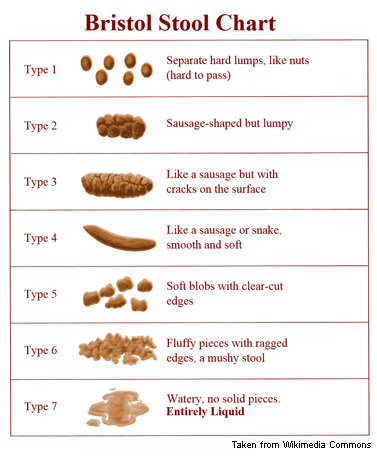Talking about bowel problems
Doctors or nurses may ask you to describe your bowel habits and what your poo (stool) looks like. This helps with your diagnosis.
To help health professionals and patients there is a scale of different types of stool called the Bristol stool chart. It has 7 different levels shown in the image below:

It's important that you speak to your healthcare team if you have diarrhoea or constipation. Early treatment will make it easier to sort the problem out.
You might find it embarrassing to talk about your bowels and bowel problems. Our bowels and going to the toilet are very private matters for many people. But nurses and doctors are used to talking about these things and will want to help you.
It may help to use the Bristol scale to tell your doctor or nurse what it is like. For example, you could say "It is usually type 4 but for the last few days has been type 6".
Information and support from Cancer Research UK nurses
For support and information, you can also call the Cancer Research UK information nurses. They can give advice about who can help you and what kind of support is available. You can call on freephone: 0808 800 4040 - Monday to Friday, 9am to 5pm. Or you can send them a question online.



